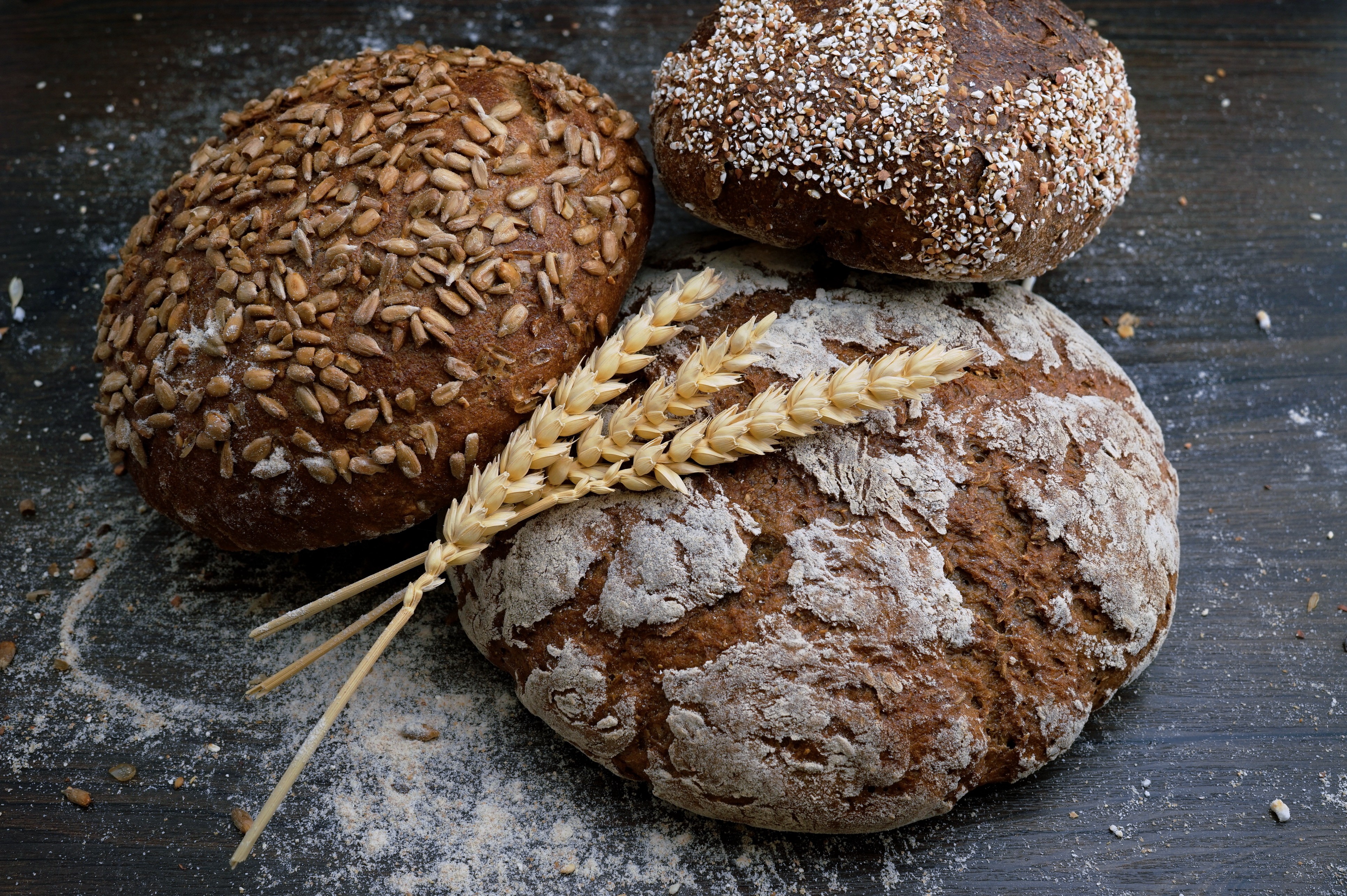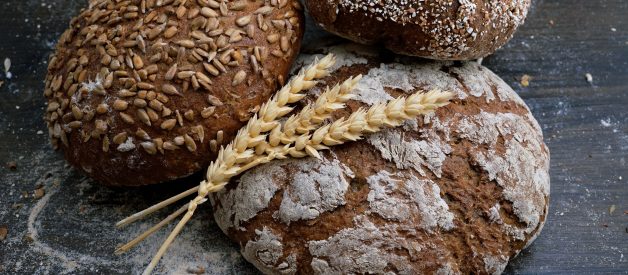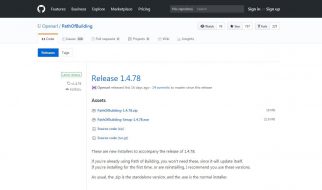The Nuance
The widespread vilification of bread isn?t supported by strong research
 Photo by Wesual Click on Unsplash
Photo by Wesual Click on Unsplash
Every week, the Nuance will go beyond the basics, offering a deep and researched look at the latest science and expert insights on a buzzed-about health topic.
 Bread has long been a foundational part of the human diet, but a revolt against it has been building for years ? and seems to be reaching a crescendo. Today, many regard bread as a dietary archvillain ? the cause of bigger waistlines and the possible origin of more insidious health concerns. Popular books and health gurus claim that bread and the proteins it harbors can cause or contribute to foggy thinking, fatigue, depression, and diseases ranging from Alzheimer?s to cancer.
Bread has long been a foundational part of the human diet, but a revolt against it has been building for years ? and seems to be reaching a crescendo. Today, many regard bread as a dietary archvillain ? the cause of bigger waistlines and the possible origin of more insidious health concerns. Popular books and health gurus claim that bread and the proteins it harbors can cause or contribute to foggy thinking, fatigue, depression, and diseases ranging from Alzheimer?s to cancer.
But go digging through the published, peer-reviewed evidence on bread and human health, and most of what you?ll find suggests that bread is either benign or, in the case of whole-grain types, quite beneficial.
?We have conducted several meta-analyses on whole-grain consumption and health outcomes like Type 2 diabetes, cardiovascular disease, cancer, and premature mortality,? says Dagfinn Aune, a postdoctoral researcher at the School of Public Health at Imperial College London. ?When looking at specific sources of grains, whole-grain bread, whole-grain breakfast cereals, brown rice, and wheat bran were all associated with reduced risks.?
?Bread isn?t the baddie it?s made out to be.?
Asked if bread should be considered a ?junk? food, Aune says the opposite is true. ?Whole-grain breads are healthy, and a high intake of whole grains is associated with a large range of health benefits,? he says, citing links to lower rates of heart disease, cancer, and mortality. In fact, his research has found that eating the equivalent of 7.5 slices of whole-grain bread per day is linked with ?optimal? health outcomes.
While Aune doesn?t see ?much benefit? in eating white bread, he says the evidence tying it to increased weight gain or other negative health outcomes is much less robust than the data on whole-grain bread?s positive effects.
Among people who study bread and whole grains, Aune is not an outlier.
?Bread itself is not the culprit,? says Nicola McKeown, a scientist with Tufts University?s Human Nutrition Research Center on Aging. While McKeown says refined-grain (white) bread is ?nutrient-weak,? she also says that weight gain cannot usually be attributed to a single food. She also points out that most Americans consume less than a single daily serving of whole grains, and 90 percent don?t eat enough fiber. Eating more whole-grain bread is a good way to make up these deficits.
Others agree. ?If you look at these large diet studies on people who live the longest with the least disease, fiber and whole grains are always major components,? says Joanne Slavin, PhD, a professor of food science and nutrition at the University of Minnesota. Slavin says the fiber in whole-grain foods and breads slows the small intestine?s absorption of fat and carbohydrates in ways that improve fullness and limit spikes in blood sugar. Farther down the digestive tract, these whole-grain fibers feed healthy gut bacteria and improve colon health.
While she doesn?t advocate for the unchecked consumption of white bread, Slavin points out that it and other starchy carbs ? white rice, pasta, potatoes ? form the foundation of most diets worldwide and aren?t an obvious issue if you?re watching your total caloric intake.
Of course, bread presents serious problems for people who have celiac disease or nonceliac gluten sensitivity. While some consider the latter of these two conditions controversial, and its symptoms remain hard to pin down, roughly 6 percent of adults may suffer from one or the other of these gluten-related disorders, says Alessio Fasano, MD, director of the Center for Celiac Research at Massachusetts General Hospital.
But for the other 94 percent of us, bread isn?t the baddie it?s made out to be.
While olive oil and fatty fish get most of the positive press, bread (and not just the whole-grain types) is considered a ?major? component of Mediterranean-style diets, which have repeatedly been linked to health and longevity. Studies that have specifically looked at bread in the context of these diets have found that people who eat the most whole-grain breads ? six slices or more a day ? are the least likely to be overweight or obese.
?There aren?t many compelling reasons to single out bread as one of your dietary nemeses.?
Even when it comes to white bread, the evidence tying it to obesity and health problems is patchy. Research has associated refined carbohydrates ? a group that includes white bread, but also cookies, cakes, and soda ? with an elevated risk for Type 2 diabetes and obesity. But studies that have assessed the health effects of white bread and refined grains independent of sugary snacks and drinks have turned up both positive and negative results.
A comprehensive review on bread and obesity that appeared in the British Journal of Nutrition found that white bread consumption may ?possibly? lead to increased abdominal fat. But more research is needed, the authors of that review say. The vast majority of the evidence supports the latest U.S. Dietary Guidelines, which state that a ?healthy? 1,800-to-2,000-calorie diet could include six slices of bread a day ? including up to three slices of ?refined-grain? white bread.
If you?re wondering how to shop for whole-grain breads, a 2015 study from the Harvard School of Public Health found that the ?most healthful? products can be identified by their total carbohydrate-to-fiber ratio. You?re looking for breads with a carb-to-fiber ratio lower than 10:1, the Harvard study says. (So, if a bread has 15 grams of total carbs per slice or per serving, you?d want it to have more than 1.5 grams of dietary fiber.)
To sum it up, there aren?t many compelling reasons to single out bread as one of your dietary nemeses. Eating white bread all day isn?t a great way to stay slim. But if you?ve been shunning all bread ? including the whole-grain types ? out of the belief that it?s fattening and unhealthy, the existing evidence suggests you?re doing your health more harm than good.


